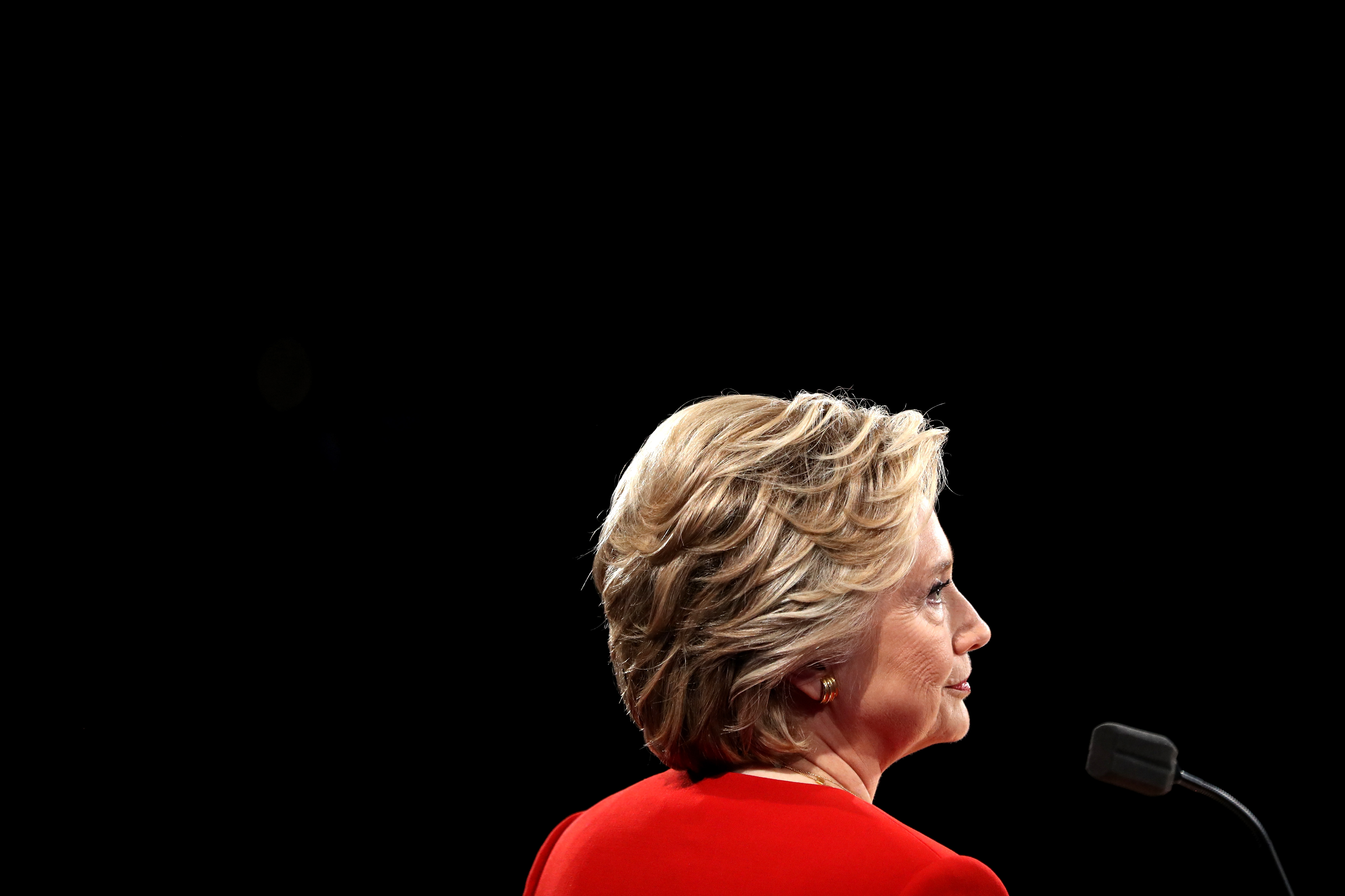Friends don't let friends read Hillary Clinton's new book
Just say no


A free daily email with the biggest news stories of the day – and the best features from TheWeek.com
You are now subscribed
Your newsletter sign-up was successful
You don't need to read Hillary Clinton's new book, What Happened. In fact, you probably shouldn't. I won't.
Certain figures could release a book of blank pages and still launch a thousand think pieces. Clinton is one of them. Ivanka Trump is another. The world is already knee-deep in clever takedowns, pieces about what they "mean," and parodies of their books. You could read Hard Choices (Clinton's 2014 memoir) and then read False Choices (a collection of response essays) and then read all the reviews of both collections. By this point you would have taken the first step into becoming an expert in Clinton Studies. But — here's the thing — why?
Clinton's book isn't blank, of course. Its 500-odd pages are covered with words, some of which are already circulating on Twitter, all of which will be minutely picked over. She's still angry at Bernie Sanders, and seems to blame him for her loss. For those who have yet to leave the 2016 Democratic primary, her book provides yet another way not to leave it. You can even join Verrit, the "media startup for Clinton voters," to revisit old wounds together there.
The Week
Escape your echo chamber. Get the facts behind the news, plus analysis from multiple perspectives.

Sign up for The Week's Free Newsletters
From our morning news briefing to a weekly Good News Newsletter, get the best of The Week delivered directly to your inbox.
From our morning news briefing to a weekly Good News Newsletter, get the best of The Week delivered directly to your inbox.
But whatever you want to read this book for, chances are, there's something else that does it better. If you want to read a history of the 2016 election, you'll probably want to read a book that covers the subject from a wider standpoint. If you're wondering how to win other elections, Clinton probably has little to tell you. And if you want to educate yourself on one of the many very pressing material concerns that the country faces, you'll want a different sort of book altogether. There are books about climate change and there are books about health care and there are books about prisons and there are books about the opiate epidemic. You (probably) aren't going to learn anything from What Happened about these issues. You (almost certainly) aren't going to learn about how to make them an effective part of a political message because if Clinton could have done that, well, she would have.
There's another motive here, which is the simple taste for gossip. This is a respectable motive. And if you want to read Clinton's perspective, or at least the sanitized version of Clinton's perspective, What Happened is your best bet. So, one exception: If politicians are the particular brand of celebrity you follow, by all means, read What Happened. No one's above gossip. Everyone loves rubbernecking at a disaster.
But, at the risk of commenting in detail about a book I have pledged not to read: In one of the leaked excerpts from What Happened, Clinton accuses Sanders of promising Americans a "free pony" without explaining how to pay for it. No one wants to be the bad guy saying free ponies are unachievable, but, in her version of the story, that's the role Sanders stuck Clinton with.
Granted: Politics does require more than just promising free ponies. But you do want to persuade people you can make their lives better, and not just that you can keep their lives from getting worse. The opposition to a reality TV presidency that has the best chance of breaking through is one that makes this point simply and well. Getting immersed in political figures as personalities, feeling their grudges as your grudges and their lives as your lives, is the opposite of what's called for. And sometimes, that free pony is not only achievable, but desperately needed.
A free daily email with the biggest news stories of the day – and the best features from TheWeek.com
So whether you read What Happened or not, here's a plea: Read something about a real problem. National Read a Book Day has come and gone, so let's call this Read Any Other Book Day. For instance: I just spent a very good evening with Valeria Luiselli's Tell Me How It Ends, a reflection about her experiences interviewing refugee children. It was certainly a timely and sensitively written book, with sharp criticisms of Obama-era policies as well as a despairing post-election coda. Toward the end, Luiselli writes:
The United States is a country full of holes. … But it's also a place full of individuals who, out of a sense of duty toward other people, perhaps, are willing to fill those holes in one by one. There are lawyers and activists who work tirelessly to help communities that aren't their own; there are students who, though not at all privileged, are willing to dedicate their time to those even less privileged than themselves. [Tell Me How It Ends]
The helpers Luiselli encounters won't be able to fill in every hole. Her book is appreciative of the work of private organizations while also drawing attention to their limits. But as her students point out to her, "we gotta turn all our emotional shit into political capital."
Clinton is, at least some of the time, a powerful symbol. And symbols — as we see from the recent debates over Confederate monuments — do matter. But they can matter too much, overshadowing what they're meant to represent. I've read so many pieces on the meaning of Clinton, from her historical position to the white suit she wore to accept her nomination. She's a compelling dramatic figure, almost tragic in her way. I'd read a novel about her, certainly. But Clinton doesn't mean much of anything at all.
And the solutions to political troubles, whatever they may be, won't be found by dedicating still more time to decoding her.
B.D. McClay is a senior editor at the Hedgehog Review.
